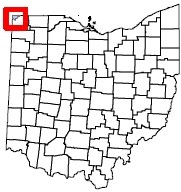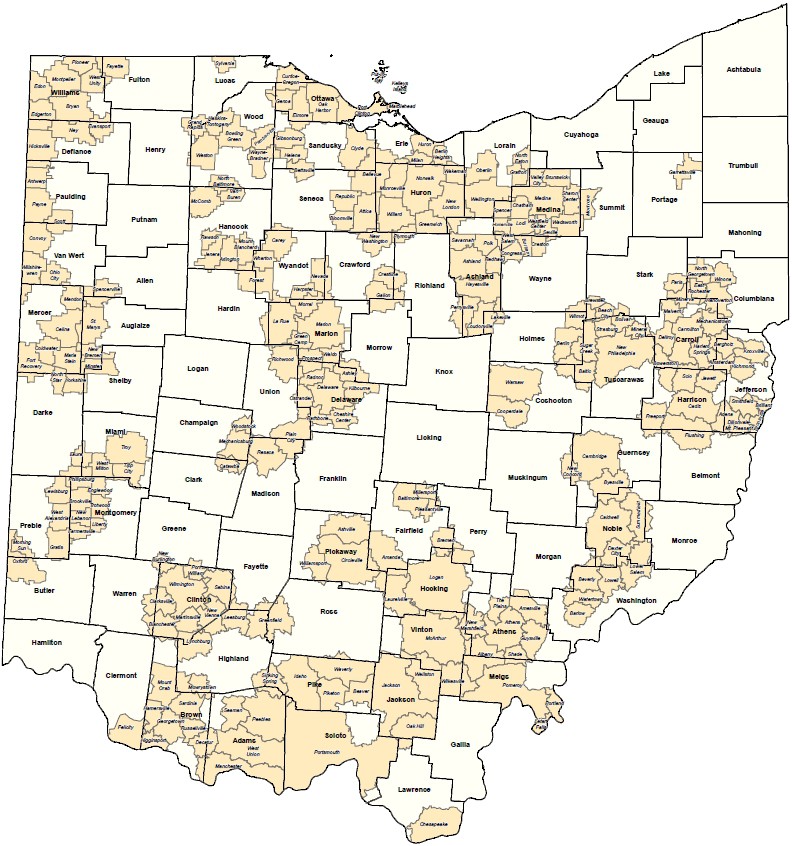 Ohio utility regulators today approved the transfer of telephone service from Verizon North to Frontier Communications with some conditions attached. The transition will make Frontier Communications the state’s second largest telephone company behind AT&T.
Ohio utility regulators today approved the transfer of telephone service from Verizon North to Frontier Communications with some conditions attached. The transition will make Frontier Communications the state’s second largest telephone company behind AT&T.
Regulators negotiated conditions with Frontier officials that requires the company to:
- deploy broadband facilities in 85 percent of Verizon’s current Ohio service area by the end of 2013;
- freeze basic local telephone rates in Frontier’s service territory at current levels until broadband deployment reaches 85 percent;
- invest in service upgrades in each of the next three years amounting to $50 million in infrastructure improvements;
- agree to track and report service outages and how Frontier responds to them.
The company has committed to keep on nearly 1,000 Verizon North employees in Ohio. Opponents expressed concern that pressure to cut costs post-merger would have come at the expense of employees.

Frontier's current service area in Ohio is a tiny portion of Williams County, serving just 480 residents from an office in Michigan (click to see a color map of the service area)
Ohio residents are largely unfamiliar with Frontier Communications. Prior to the merger, just 480 residents in a tiny portion of Williams County in northwest Ohio had Frontier telephone service, served by Frontier Communications of Michigan’s office in Osseo, Michigan.
Right now, residents of Billingstown, Cooney, Northwest, and Nettle Lake, Ohio might qualify for Frontier High-Speed Internet Max, advertising “breakthrough speeds at an unbeatable price.” That is “up to 3Mbps” service starting at $49.99 a month.
Those members of Frontier’s family of customers will now be joined by 435,000 Verizon residential customers in 77 of Ohio’s 88 counties.
The largest portion of Frontier’s new service area will include parts of Champaign, Clark, Clinton, Darke, Miami, Montgomery, Preble, Shelby and Warren counties.
Despite early opposition from Ohio Consumers’ Counsel (OCC), who expressed concerns about the financial viability of the deal and the fulfillment of promised broadband expansion, the vote by the Public Utilities Commission (PUC) was unanimous. After negotiations with company officials and the OCC and PUC, an agreement to attach conditions to the sale of Verizon’s landlines resulted in a change of heart by the Counsel’s office.

Frontier's new service area, representing territory formerly served by Verizon North (click to enlarge)
Many of Ohio’s former Verizon service areas are served by Verizon”s DSL service, but many rural communities went unserved. Verizon has made a business decision to direct resources into its fiber to the home service — FiOS, which is only being provided in substantial-sized communities. With Verizon’s reduction in resources towards rural service areas, Frontier argues the sale will benefit rural residents because they will provide broadband service Verizon never did. Frontier suggests the viability of its landline business is enhanced by robust broadband deployment as consumers continue to drop traditional phone service. Broadband gives customers a reason to stay with Frontier, the company believes.
But critics contend Frontier’s broadband is behind-the-times, often providing less than 3Mbps service in many smaller communities. Frontier also maintains language in its Acceptable Use Policy that expects consumers to limit their broadband use to just 5GB per month, although company officials stress they do not enforce that provision at this time.

Frontier believes broadband deployment will help the company survive the trend away from landline phone service
Frontier relies on traditional, basic ADSL service across its service areas nationwide, but also provides provides some communities with Wi-Fi access for an additional monthly charge.
Similar earlier deals between Verizon and FairPoint Communications, the Carlyle Group, and Verizon’s former telephone directory printing operation (now Idearc Media) have all ended in bankruptcy after months of sub-standard service, billing errors, and broken promises. Should a similar fate befall Frontier Communications, a trip to Bankruptcy Court could put an end to broadband, pricing, and service commitments made with state officials.


 Subscribe
Subscribe

